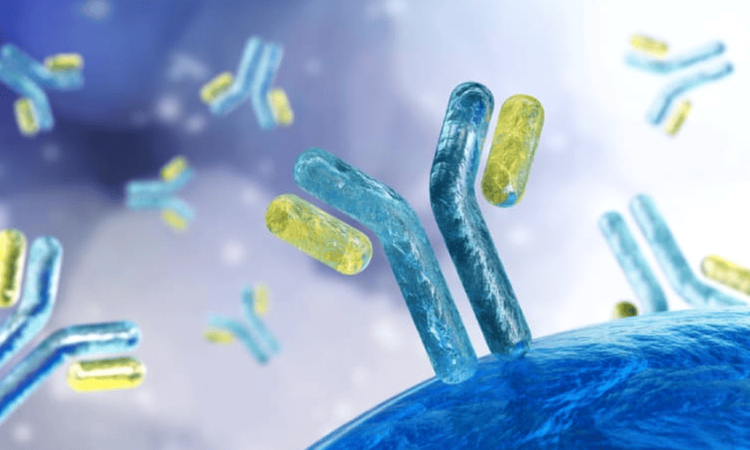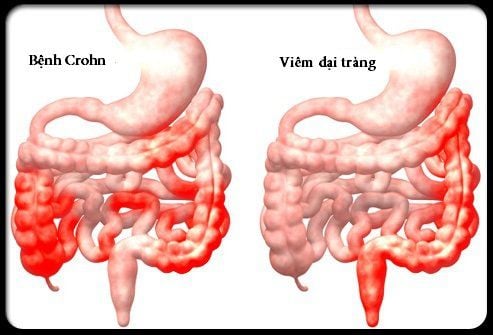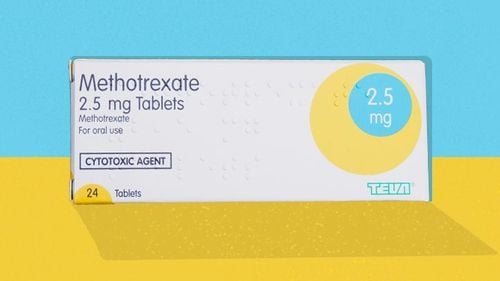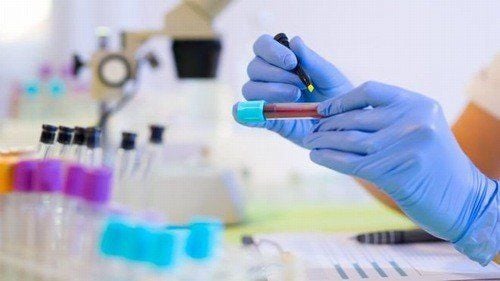This is an automatically translated article.
Autoimmune diseases are caused by the immune system mistakenly attacking healthy cells of the body causing more than 80 different diseases. These diseases can flare up and go into remission if symptoms are controlled. However, autoimmune diseases cannot be completely cured, and in the long run can leave many dangerous complications.
1. Characteristics of autoimmune diseases
The immune system normally functions to protect against germs such as bacteria and viruses. When the immune system senses foreign agents entering the body, it sends a signal to cells to defend and attack the foreign agent. Normally, the immune system can tell the difference between foreign cells or foreign agents and cells in the body.
Autoimmune disease is a condition in which the immune system mistakenly attacks the body such as joints, skin, ... The immune system will release antibodies (also called proteins) that attack healthy cells. . Some autoimmune diseases affect only one organ. For example, type 1 diabetes destroys the pancreas.
The cause of the confusion of the immune system is still not clear. Furthermore, some people are more likely to develop autoimmune diseases than others. However, a 2014 study found that women (6.4%) had higher rates of self-infection than men (2.7%). Usually, the disease will begin around the time of childbearing (between 15 and 44 years of age). Or another study of autoimmune diseases in several ethnic groups found that systemic lupus erythematosus affected more African-Americans and Hispanics than whites.
Some autoimmune diseases like multiple sclerosis and lupus can run in families. Not all family members will get the same disease, but they will inherit a sensitivity to the autoimmune condition.
Certain Western diets are also risk factors for developing autoimmune diseases. Eating fatty, high-sugar, and processed foods is thought to be associated with inflammation and triggering an immune response.
A 2015 study focused on the hygiene hypothesis. Children today are less exposed to pathogens than before because they have been given vaccines or antiseptics. This lack of exposure can cause the immune system to overreact to harmless substances.

Bệnh tiểu đường type 1 là bệnh tự miễn
2. Criteria for defining autoimmune disease
2.1. Autoimmune expression
The first step in assigning an autoimmune cause to a disease of unknown origin in humans is to demonstrate an autoimmune response to a relevant antigen. Autoantibodies may also be useful in accurately identifying antigens for disease that is cell-mediated rather than immune-mediated.2.2. Role in autoimmune disease
The mere presence of autoantibodies does not guarantee that the disease has an autoimmune cause. Autoantibodies may be a consequence of the disease and may even be unrelated to the disease process. An important step is to identify the mechanism of action involved.

Các tự kháng thể có thể là hậu quả của bệnh tự miễn
2.3. Related clues
Sometimes it is not possible to go through the major steps outlined above in establishing the autoimmune ecology of a human disease. In practical terms, there are several clues that can be used by clinicians to suggest an autoimmune etiology. The first clue may be a close association with a particular haplotype. And the second clue is the association of one disease with another known to have autoimmune causes. However, from a clinical point of view, successful treatment of the disease seems more important than directly establishing an autoimmune cause.
3. Some Common Autoimmune Diseases
There are more than 80 different autoimmune diseases. These are the 14 most common of them
Type 1 diabetes: The pancreas produces insulin to help regulate blood sugar. However, the immune system attacks and destroys insulin-producing cells leading to high blood sugar and can damage blood vessels as well as other organs: heart, kidneys, eyes, nerves. Rheumatoid arthritis: The immune system attacks the joints causing redness, warmth, pain, and stiffness. Psoriasis: Skin cells often grow and then slough off. Psoriasis is caused by skin cells multiplying too quickly and building up as red, inflamed patches. Up to 30% of people with psoriasis also develop swelling, stiffness, and pain in the joints. This is psoriatic arthritis. Multiple sclerosis: The disease destroys myelin - the protective layer around nerve cells in the central nervous system. When the myelin sheath is damaged, it slows down the speed of communication between the brain and spinal cord to other parts of the body. Systemic lupus erythematosus: A systemic rash that affects multiple organs such as the joints, kidneys, brain, and heart. Inflammatory bowel disease: A condition that causes inflammation in the lining of the intestinal wall. Crohn's disease can cause inflammation in any part of the digestive tract from the mouth to the anus. In ulcerative colitis, only the lining of the large intestine and rectum is inflamed.

Bệnh viêm ruột gây viêm trong niêm mạc của thành ruột
Addison's disease: Affects the adrenal glands, which produce the hormones cortisol and aldosterone as well as androgens. Illnesses caused by too little cortisol can affect the use and storage of carbohydrates and sugar (glucose). At the same time, a lack of aldosterone will lead to a loss of sodium and an excess of potassium in the blood. Graves' disease: The disease attacks the thyroid gland in the neck, causing it to produce too much hormone. Up to 30% of patients with Graves may develop Graves ophthalmopathy (bulging eyes). Sjögren's syndrome: A disease caused by an attack on the glands that supply lubricating oil to the eyes and mouth. In addition, it can also affect joints or skin. Hashimoto's thyroiditis: Due to the slow production of thyroid hormone and causes a deficiency compared to the required level. Myasthenia gravis: The disease affects nerve impulses, which help the brain control muscles. When the signals from the nerve to the muscle are impaired, these signals can direct the muscle to contract. Autoimmune vasculitis: The disease occurs when the immune system attacks the blood vessels causing inflammation that narrows the arteries and veins. Pernicious anemia: The disease causes a deficiency in a protein made by cells lining the stomach (an intrinsic factor needed for the small intestine to absorb vitamin B12 from food). A lack of vitamin B12 will cause anemia and change the ability to synthesize DNA. Celiac disease: Usually occurs in people with the disease who cannot eat foods containing the gluten-protein found in wheat and rye. When gluten is in the small intestine, the immune system attacks the digestive tract and causes inflammation.

Bệnh celiac là bệnh tự miễn phổ biến
Autoimmune diseases if not detected and treated promptly can lead to dangerous complications. Therefore, when symptoms are suspected related to autoimmune diseases, patients can go to reputable medical facilities for examination, advice and treatment as soon as possible.
Vinmec International General Hospital is the address for examination, treatment and prevention of diseases. When performing the examination process at Vinmec, customers will be welcomed and used modern facilities and equipment along with perfect medical services under the guidance and advice of experts. Good doctors, well-trained both at home and abroad.
Customers can directly go to Vinmec Health system nationwide to visit or contact the hotline here for support.
References: hopkinsmedicine.org, healthline.com, ncbi.nlm.nih.gov













